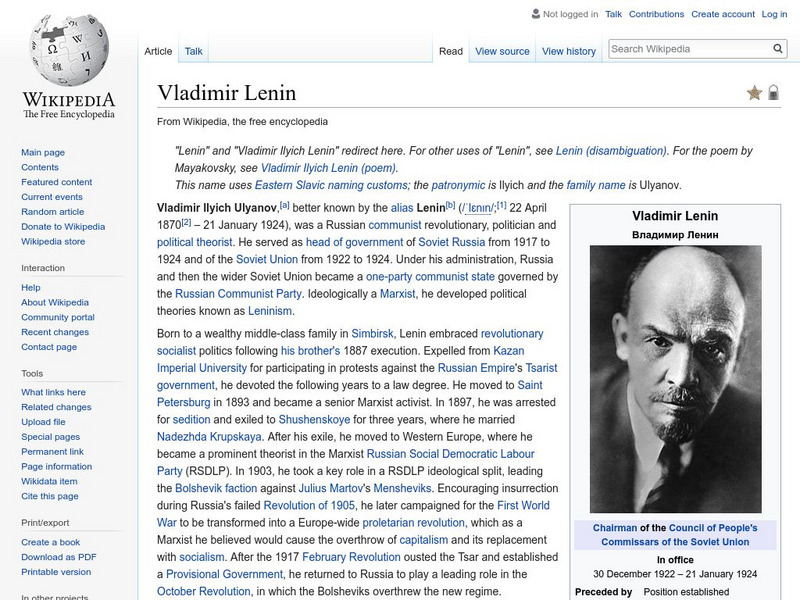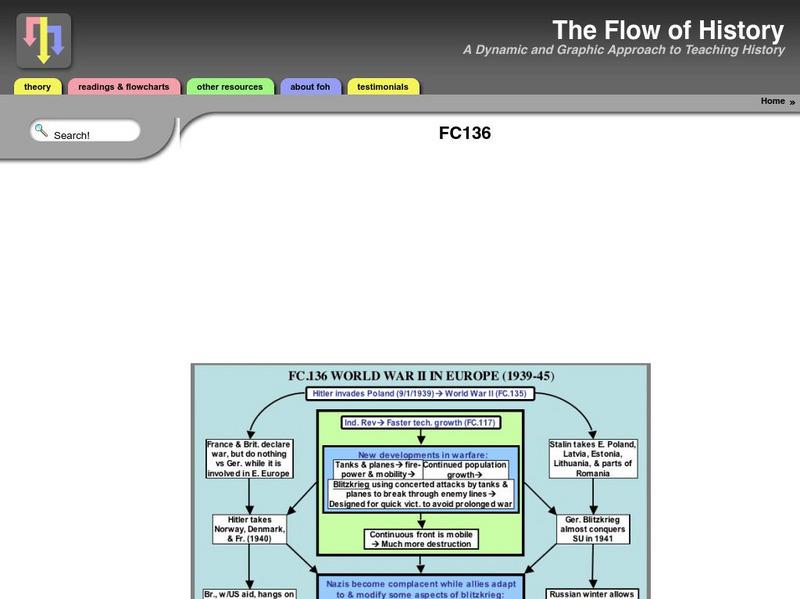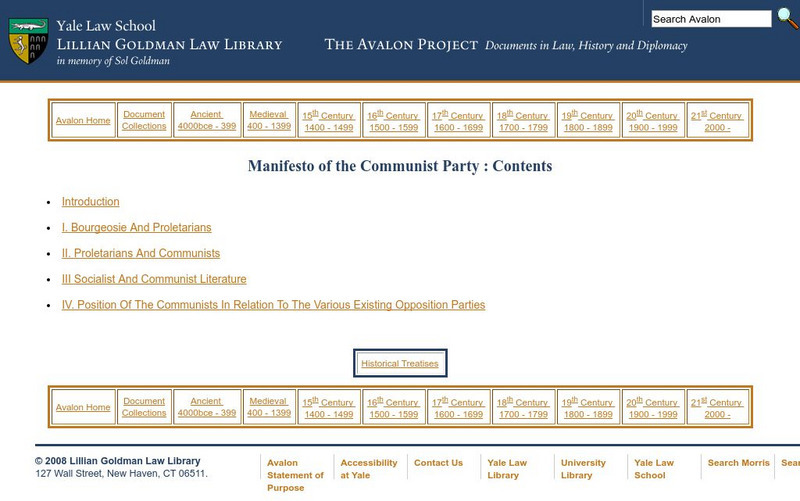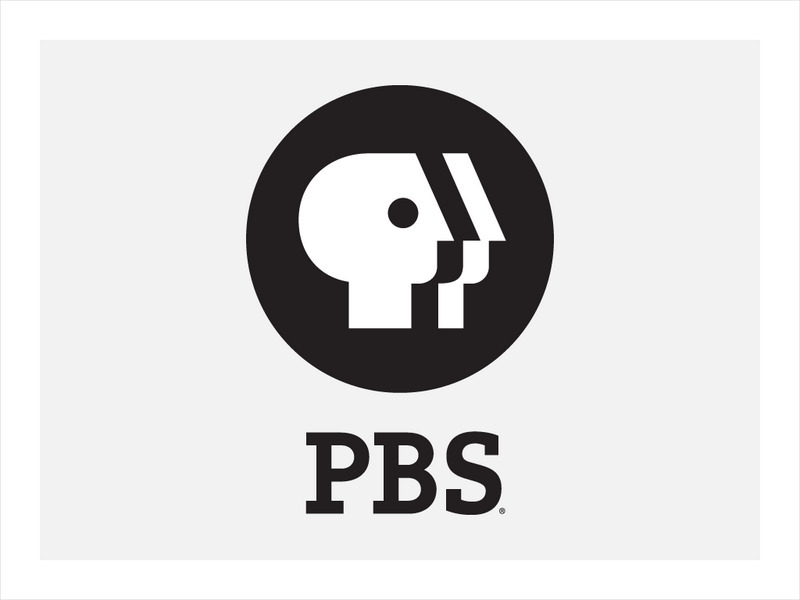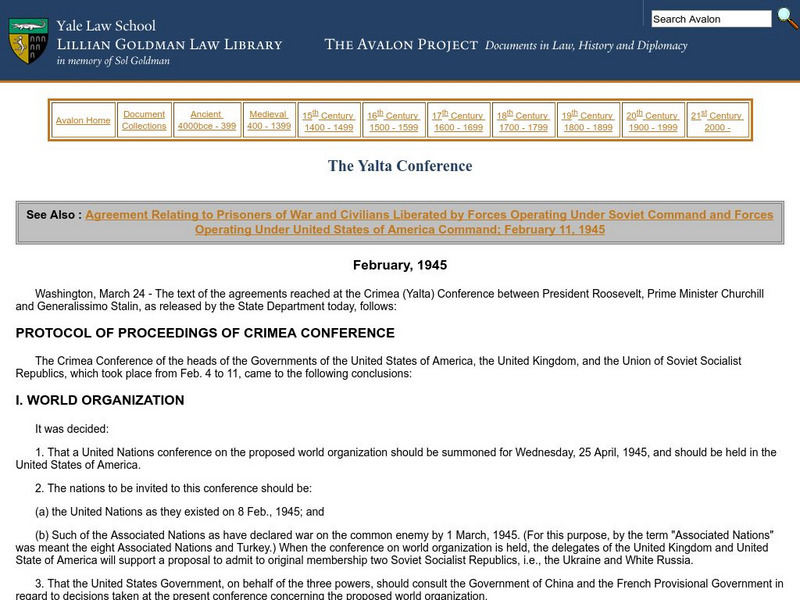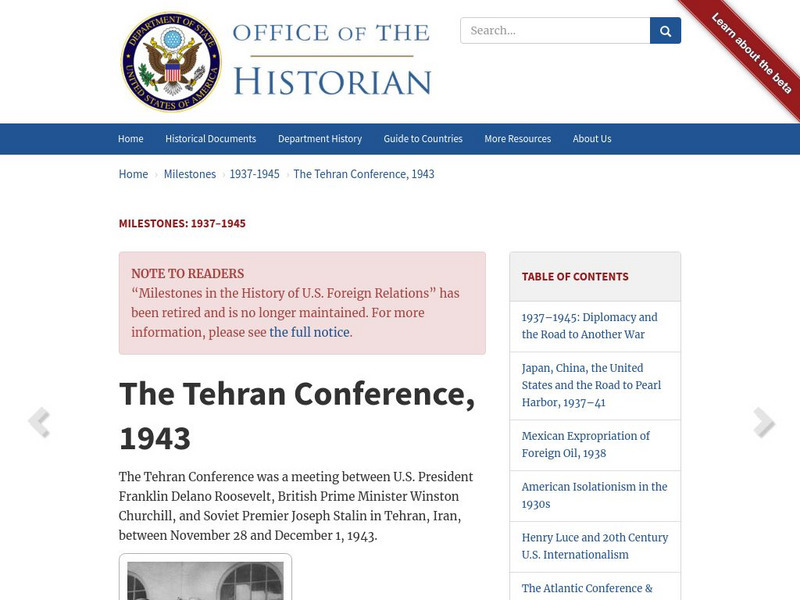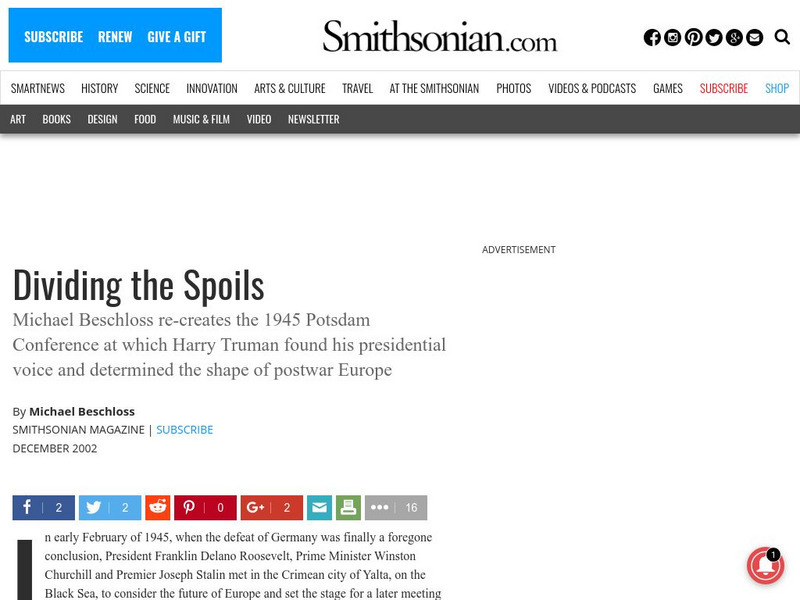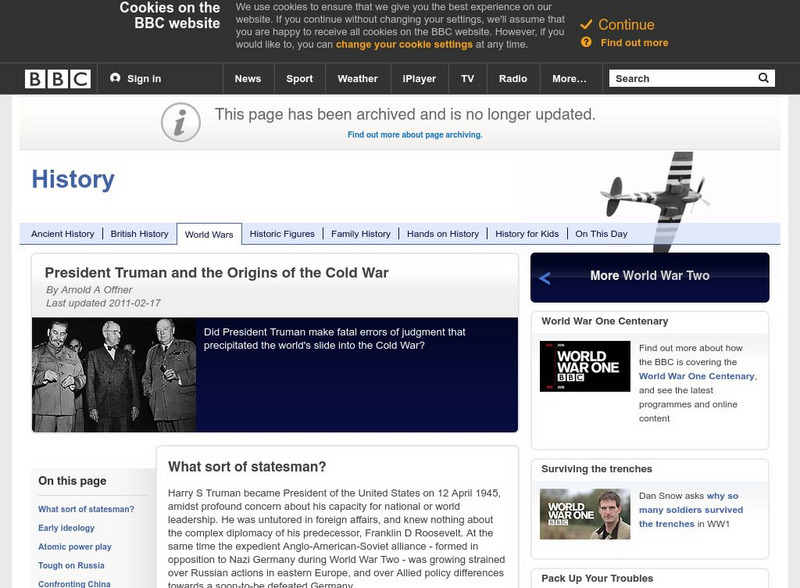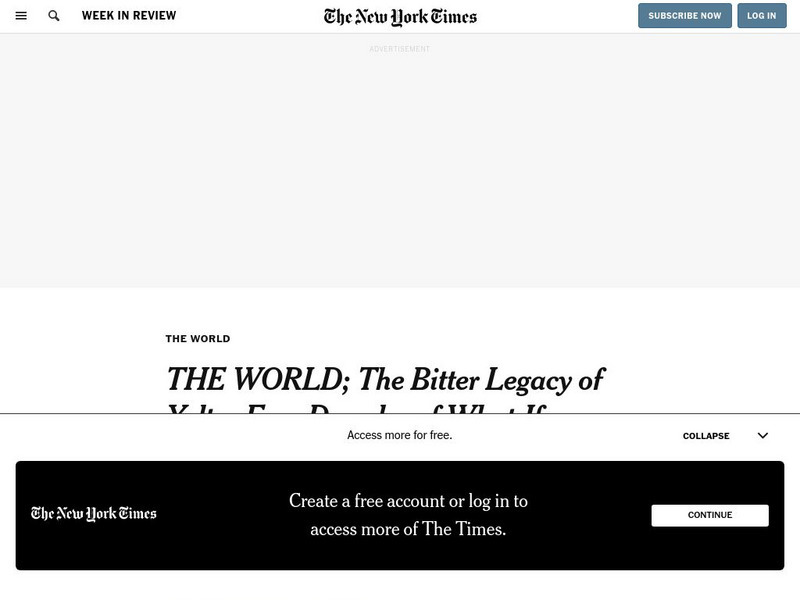Hi, what do you want to do?
Independence Hall Association
U.s. History: The Cold War Erupts
World War II ended in 1945 and the Cold War began immediately. Read about the mistrust Western Europe and the United States felt towards the Soviet Union and Joseph Stalin. Learn how the Soviets expanded their realm of influence and...
National Archives (UK)
The Learning Curve: Allies at War
An extensive site chronicling the public consensus shown to the media among Allied members: the USSR, Great Britain, and the USA. Gives ample primary sources and student activities.
ibiblio
Ibiblio: The Soviet Union and the United States
This site from ibiblio.org gives information about the historical relationship between the Soviet Union and the United States. After reading the summary on this page, click on the links at the bottom of the page to read about early...
Digital History
Digital History: Munich: Anatomy of a Crisis [Pdf]
This excellent lesson plan lays out the framework of the lead-up to World War II in Europe. It covers the problem the support of Czechoslovakia caused Great Britain and France, the policy of appeasement exercised by Prime Minister...
US Navy
Naval Historical Center: The Potsdam Conference, July August 1945
This is a brief summary with pictures of the Potsdam Conference.
PBS
Pbs American Experience: Race for the Superbomb
This site explores the Cold War race to develop the hydrogen bomb, a weapon that would change the world. Content details all the people who were involved in the race for the H-Bomb, as well as notable events during this time period....
Wikimedia
Wikipedia: Vladimir Lenin
A detailed article on the life of Vladimir Lenin. Discusses his life before becoming the leader of the Soviet Union, his political accomplishments as a leader and his death.
Flow of History
Flow of History: Nuclear Arms Race
The events and countries involved in the nuclear arms race are profiled. Text plus a colored graphic flowchart make the topic visually appealing and of interest to both students and educators.
Flow of History
Flow of History: World War Two in Europe
The outbreak of World War Two in Europe began with Hitler's invasion of Poland. Through text and a colored graphic flowchart, the events and battles and eventual end of the war, can be visually traced. Suitable for both students and...
Other
St. Martin: Iron Curtain 1945 1947
This article discusses the development of the Soviet Union's Communist buffer zone after World War II and its evolution into the Iron Curtain of the Cold War.
Yale University
The Avalon Project: Manifesto of the Communist Party
Complete text of the Communist Manifesto.
PBS
Pbs: American Experience: Truman: Foreign Affairs
This site gives a great overview of the early Cold War under President Truman. Describes relations with the Soviet Union, the atomic bomb, actions in western Europe, and the Korean War. A great piece that gives the reader a fantastic...
Yale University
Avalon Project: Yalta Conference
Read the document that presented the protocal adopted at the Yalta Conference which addressed many world issues, primarily what would happen with Germany and Japan at the end of World War II.
Digital History
Digital History: The Yalta Conference [Pdf]
This is a very extensive look at the Yalta Conference. Find the problems addressed at the conference, the enumerated possible solutions, the positions each of the Big Three leaders held, and the actual results of the conference. Included...
Smithsonian Institution
National Portrait Gallery: The Presidency and the Cold War: Franklin Roosevelt
This extensive site from the National Portrait Gallery explores presidential actions in relation to the Cold War from the Yalta Conference to the presidency of George H.W. Bush. Click on Franklin Roosevelt to find out about the decisions...
New York Times
New York Times: On This Day: Roosevelt, Churchill Map 1943 War Strategy
A great article from the New York Times on January 24, 1943, reporting on the meeting between President Roosevelt and Winston Churchill at Casablanca. At this meeting it was confirmed that the United Nations would accept only...
US Department of State
Office of the Historian: Tehran Conference, 1943
A thorough discussion of what transpired at the Tehran Conference in December, 1943, among the Allied leaders. Find out about future war strategy as well as postwar plans for Europe and the Pacific.
OpenStax
Open Stax: World War Ii 1941 1945: Origins of War: Europe, Asia and United States
Examines the conditions that fostered the rise of Fascism and Nazism, the events during the lead-up to the outbreak of war, and what Roosevelt did to help affected nations yet still keep the United States neutral.
University of Virginia
Miller Center at Uva: u.s. Presidents: Fdr: Fireside Chat 27: On the Tehran and Cairo Conferences
After Franklin Roosevelt's meeting with other Allied leaders in Tehran and Cairo in December, 1943, he gave a fireside chat on December 24 to inform the American public what transpired and how the Allies planned on ending the war.
Smithsonian Institution
Smithsonian: Dividing the Spoils
Historian Michael Beschloss discusses Harry S. Truman's role in the Potsdam Conference and examines how his decisions there paved the way for the Cold War. (December 2002)
Council of Foreign Relations
Foreign Affairs: The Cold War Reopened
In his article entitled "Inside Enemy Archives: The Cold War Reopened," Melvyn Leffler discusses the ramifications of archival documents from the Russians on the Cold War era. Can Soviet actions during that time be viewed in a different...
BBC
Bbc: President Truman and the Origins of the Cold War
BBC correspondent Arnold A Offner discusses the role Harry S. Truman played in development of the Cold War. American history from a British point of view.
Harry S. Truman Library and Museum
Harry S. Truman Library and Museum: The Long Telegram
This primary source document reveals Russia's growing distrust of the United States and its desire to strengthen its position in the global community through greater military security.
New York Times
New York Times: The Bitter Legacy of Yalta
[Free Registration/Login Required] New York Times correspondent Jason DeParle reflects on the controversial legacy of the Yalta Conference. (November 26, 1989)
Other popular searches
- Joseph Stalin
- Joseph Stalin Activities
- Joseph Stalin Russia
- Joseph Stalin Revolution
- Social Studies Joseph Stalin
- Animal Farm Joseph Stalin





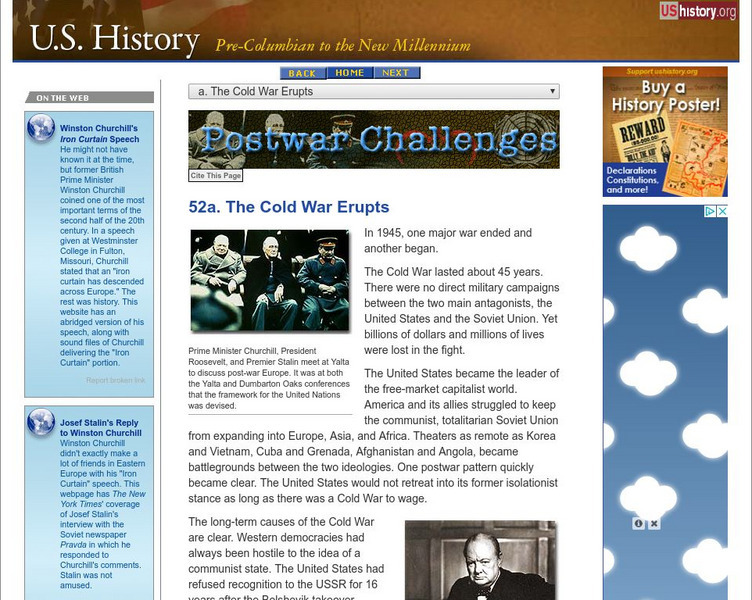

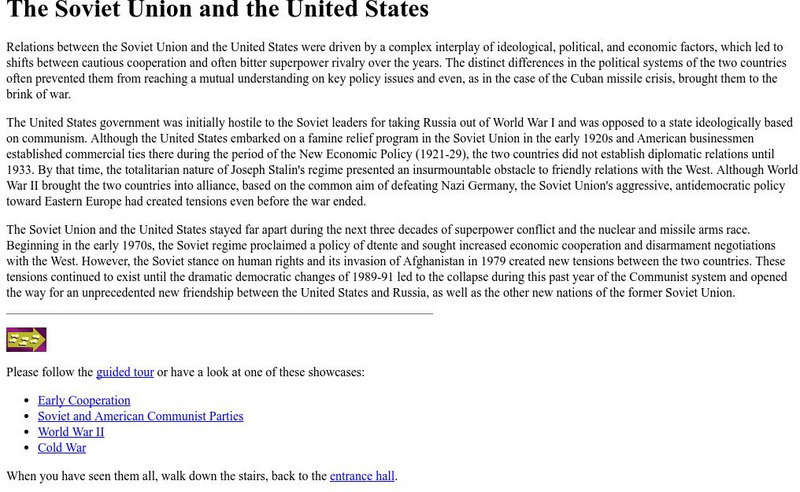
![Digital History: Munich: Anatomy of a Crisis [Pdf] Website Digital History: Munich: Anatomy of a Crisis [Pdf] Website](https://static.lp.lexp.cloud/images/attachment_defaults/resource/large/FPO-knovation.png)

